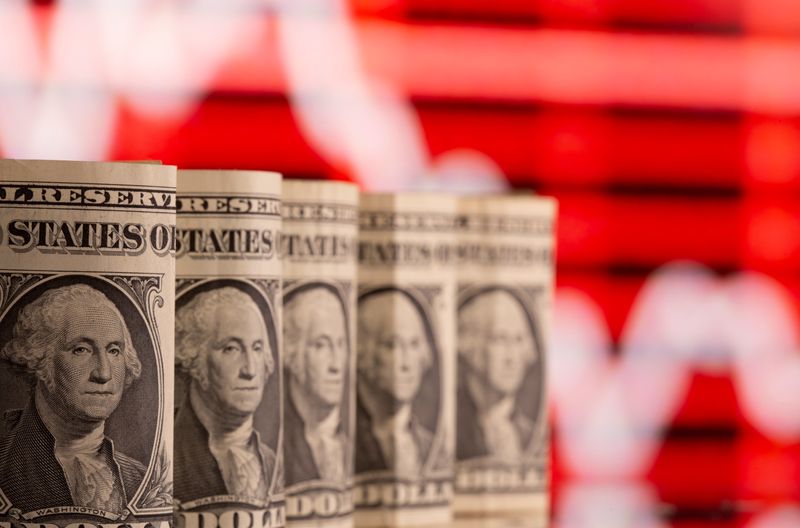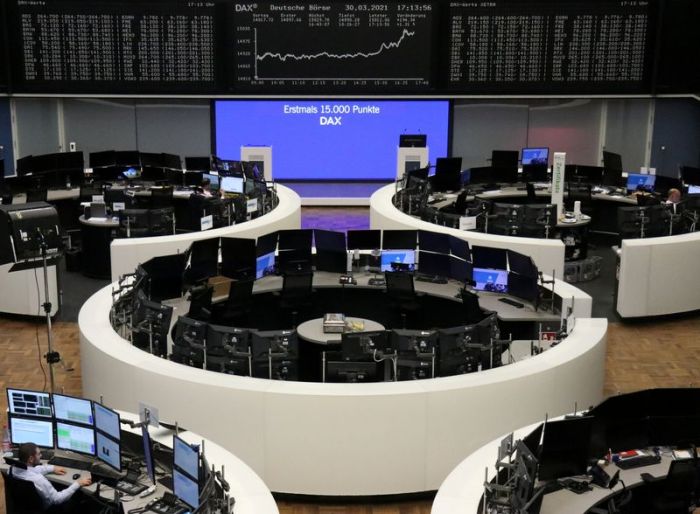NEW YORK (Reuters) – The U.S. dollar’s share of currency reserves plunged in the fourth quarter last year to its lowest since 1995, International Monetary Fun (IMF) data showed on Wednesday, but some analysts said the drop was due in part to valuation adjustments.
Global reserves, which are reported in U.S. dollars, are assets of central banks held in different currencies used primarily to support their liabilities. Central banks sometimes use reserves to help support their respective currencies.
The greenback’s share slid to 59% in the fourth quarter, from 60.5% in the third, declining for three straight quarters. Its share in 1995 was 58%.
Still, the dollar has the largest share of currency reserves held by global central banks. It posted a high of a nearly 73% share in 2001, data showed.
More importantly, analysts said reserves held in U.S. dollars rose to an all-time peak of $7 trillion in the fourth quarter, compared with $6.939 trillion in the third. Reserves held in euros, meanwhile, rose 7% on a quarterly basis to $2.52 trillion.
“The 59% (dollar share) is a statistical noise generated by a combination of valuation and material changes,” said Marc Chandler, chief FX strategist, at Bannockburn Global Forex in New York.
“Since reserves are reported in U.S. dollars, so it makes no sense to talk about reserves holdings without taking valuations in account.”
While the dollar value of euro reserves increased 7% in the fourth quarter, the actual holdings, as opposed to the value, rose by a more modest 3% when adjusted for valuation, Chandler said.
The euro share rose to 21.2% in the fourth quarter, compared with 20.5% in the third. Its share in the fourth quarter was the highest since 2014. In 2009, the euro hit its highest share of FX reserves at 28%.
In the fourth quarter, the dollar posted losses against major reserves currencies. Sterling appreciated by 5.8%, the euro by 4.2% and the yen by almost 2.2%. The Chinese yuan rose 4%.
The greenback rallied in the first quarter of 2021, with the dollar posting gains of roughly 3.5%, its best performance since June 2018.
The Chinese yuan’s share increased to 2.25% during the period, gaining for four consecutive quarters, with yuan reserves rising 9% to $267 billion. The IMF started tracking the yuan’s share in 2017.
Bannockburn Global Forex’s Chandler said about 4% of the increase in yuan’s reserves was due to valuations of the currency versus the dollar.
(Reporting by Gertrude Chavez-Dreyfuss; Editing by Marguerita Choy and Bernadette Baum)

























